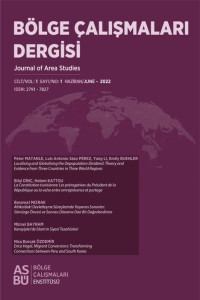Abstract
Migration is a global movement with millions of people participating as individual actors. This duality that connects global and individual experiences brings anthropological studies into prominence, for each migrant community can be considered unique in its language and relationships. Erica Vogel’s ethnographic study, Migrant Conversions, demonstrates an insightful and compelling example of Peruvian migrants’ transformations, either in their statuses or in how they see themselves before the world that keeps forcing them to change to survive as the flag carriers of globalization. She examines Peruvian migrants reconsidering their migrations and converting their economic, social, and cultural capitals fluidly to suit their plans and to be part of an extensive transnational community, becoming spiritual saviors and global leaders of their community at the cost of loss and constant anxiety. As Vogel puts it, “..conversions were a way for migrants to negotiate their place in the world and to influence the ways others saw them(86)”. She demonstrates the liminality and value of being a low-profiled migrant abroad, and she also presents the power relations between migrants and their families as indicators of conversions’ effect that change in time and context.
Keywords
Details
| Primary Language | English |
|---|---|
| Subjects | International Relations |
| Journal Section | Book Reviews |
| Authors | |
| Publication Date | June 29, 2022 |
| Submission Date | May 27, 2022 |
| Published in Issue | Year 2022 Volume: 1 Issue: 1 |


